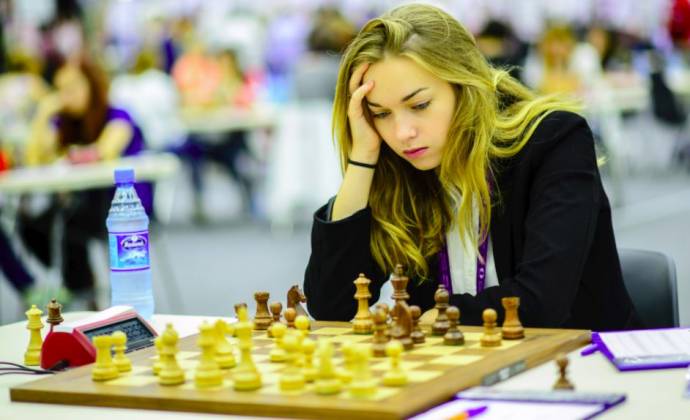January 24, 2018
Slovenian chess player Laura Unuk, a 18-year-old secondary school student, boasts two titles from the World Youth Chess Championship, notes the STA in a report published January 24, 2018. She believes that success in chess requires both physical and mental fitness and a combination of skills, foremost among them competitiveness. She wants to win a title in the men's competition at one point and prove that female players should not be underestimated.
Introduced to the world of chess by her grandfather, she was enrolled in a school chess club at the age of seven and has been competing regularly since. Unuk says that chess is special to her. "I was attracted by the chess pieces, the endless number of moves, the fact that every game is unique. At the same time, playing chess improves your math and logic skills and memory."
Unuk was only 14 when she won the World Youth Chess Championship in the under-16 category in 2014. Last September, she secured the world champion title in the girls' under-18 category in Montevideo, Uruguay, clinching the victory one round before the end of competition.
The titles provided the young chess master with further motivation and proved to her that she was capable of achieving great results. She also hopes that her results are an inspiration to young people to start playing chess.
Unuk is convinced that being successful at chess competitions requires a combination of various skills, with competitiveness the most important one. "It is important that you persist despite poor results, that you are mentally capable of overcoming all obstacles," she says.

Wikimedia
This year she is aiming at the title of grandmaster, with only one of the three required norms separating her from the goal. In the long run, Unuk wants to become the women's world champion, and would like to compete for a title in the men's competition at some point. The idea is to prove that female players should not be underestimated.
"Men have always underestimated women in chess. They used to say that we are not as psychologically capable as them, that our nature prevents us from enduring for so long at the chessboard. But we have proven that we can beat men, that we can be fierce competition and that they need to be a little bit afraid of us."
The Ljubljana chess club, where she comes from, has been very supportive and is the place where she and her coach, grandmaster Matej Šebenik, are building plans for the future.
When she is preparing for competition, she practices nine hours a week with her coach and another hour each day at home. She also takes care of her physical fitness by running and lifting weights.
According to Unuk, chess is a very psychological game, but the history of chess has shown that physical fitness is exceptionally important as well. She has noticed that regular running and weightlifting sessions have improved her results at tournaments significantly.
The longest game she has ever played lasted almost six hours. "You start to make mistakes a true chess player must never allow to happen. In order to sit in the same position for that amount of time and at the same time think and calculate up to five moves in advance, one needs both mental and physical fitness."
While she is thinking about becoming a professional chess player, Unuk would like to go to university first. She wants to stay in Europe, which she believes has very well-developed courses, while there are also numerous opportunities for employment.
However, European universities do not award chess fellowships like US universities, which is why she is currently thinking about moving to the US.






